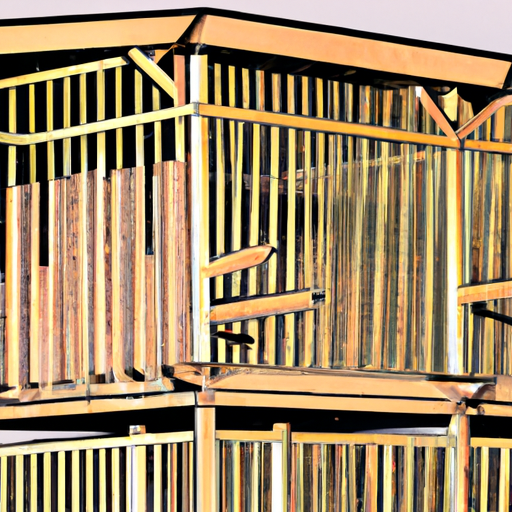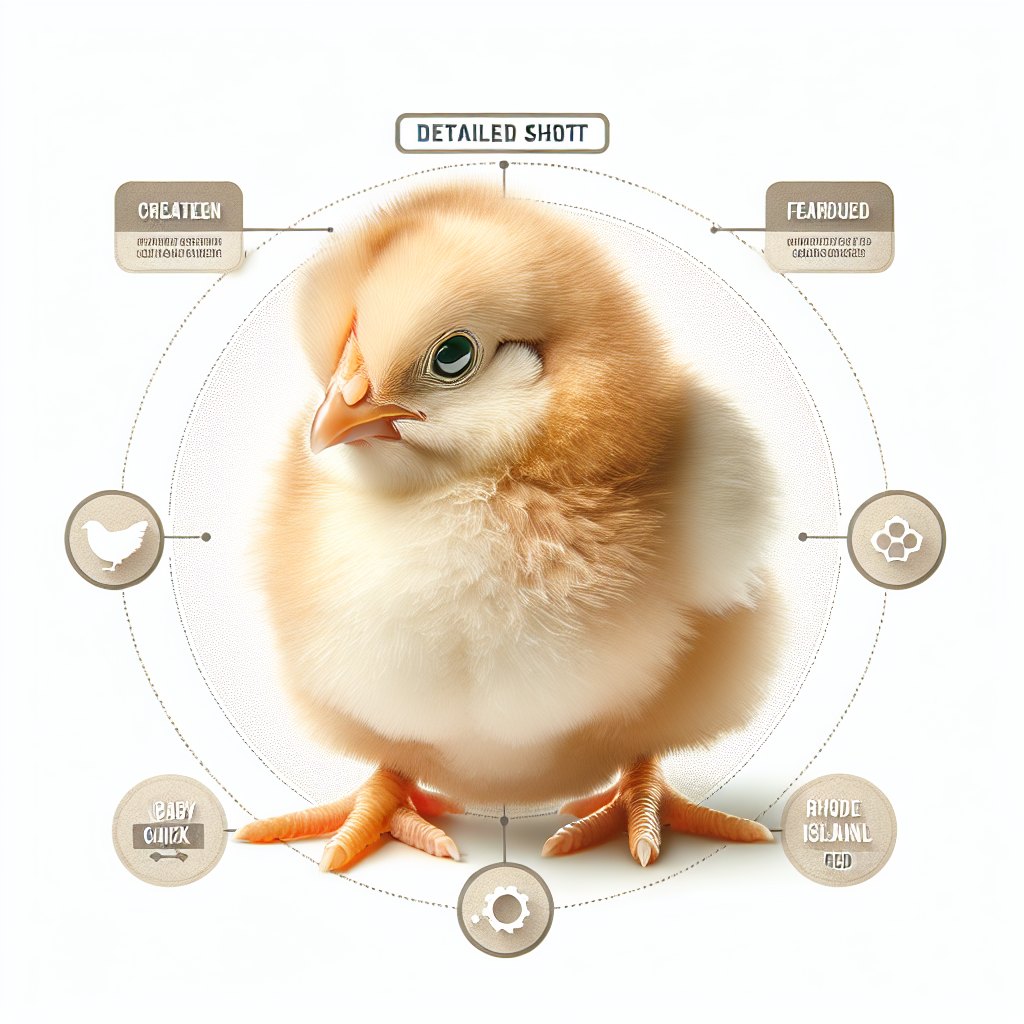So you’ve just welcomed a flock of adorable baby chickens into your life and now you’re eager to ensure their safety. As a responsible chicken keeper, protecting your sweet little fluffballs from potential predators is a top priority. But fear not, because in this article, we will explore some simple yet effective strategies to safeguard your precious baby chickens from any unwanted encounters with hungry critters. From secure enclosures to predator deterrents, we’ve got you covered on all things predator protection. Let’s dive in and make sure those baby chickens stay safe and sound!
Understanding the Threats
When it comes to protecting your baby chickens from potential predators, it is essential to have a good understanding of the threats they face. By identifying common predators, recognizing vulnerable times, and understanding predator behavior, you can better prepare yourself and your flock.
Identifying Common Predators
One of the first steps in safeguarding your chickens is to be aware of the common predators in your area. Different regions may have varying types of predators, but some of the most common ones include foxes, raccoons, coyotes, hawks, owls, snakes, and even domestic dogs or cats. By familiarizing yourself with the predators prevalent in your locality, you can tailor your defense strategies accordingly.
Recognizing Vulnerable Times
Predators are opportunistic and tend to strike when chickens are most vulnerable. Identifying these vulnerable times will help you implement extra precautions during those periods. For example, dusk and dawn are prime hunting times for many predators, as they are drawn to the movement and activity of chickens during these low-light hours. Additionally, when chickens are outside their coop, whether for free-ranging or foraging, they become more susceptible to attacks. By recognizing these vulnerable times, you can take proactive measures to protect your flock.
Understanding Predator Behavior
Understanding the behavior of potential predators is crucial in developing effective defense strategies. Predators often rely on stealth, agility, and surprise to catch their prey. They may scout the area, observe the chickens’ routines, and exploit any weaknesses in your coop’s security measures. By understanding predator behavior, you can anticipate their actions and tailor your defensive efforts accordingly.
Fortifying the Chicken Coop
Ensuring that your chicken coop is secure is paramount in protecting your baby chickens from potential predators. By choosing a sturdy coop design, securing entrances and exits, installing predator-proof fencing, and covering windows and vents, you can significantly reduce the risks.
Choosing a Sturdy Coop Design
When selecting a coop design, opt for one that is robust and predator-resistant. Avoid flimsy materials that may be easily breached. Ensure that the coop is well-constructed with sturdy materials such as solid wood or metal. Reinforce weak areas, such as corners or gaps, and consider adding an extra layer of protection, such as hardware cloth or wire mesh, to deter predators.
Securing Entrances and Exits
Predators often exploit easy entry points such as doors, windows, or small gaps. Secure all entrances and exits by using high-quality locks or latches that predators can’t manipulate. Consider installing predator-resistant doors that are too heavy or secure for predators to open. Inspect the coop regularly for any potential breaches and promptly address them to maintain the security of your chickens.
Installing Predator-Proof Fencing
Installing predator-proof fencing is one of the most effective ways to fortify your chicken coop. Choose fencing materials that are strong and able to withstand attempted breaches. Burry the fencing at least one foot deep and extend it at least six feet above ground level to prevent predators from digging under or climbing over the fence. Regularly inspect the fencing for any signs of damage, and promptly repair or replace it as needed.
Covering Windows and Vents
Windows and vents not properly covered can serve as potential entry points for predators. Install hardware cloth or wire mesh over windows and vents, ensuring it is securely fastened. This will allow proper ventilation while keeping predators out. Regularly inspect the coverings for damages or signs of wear and replace them when necessary to maintain the security of the coop.
Implementing Safety Measures
In addition to fortifying the chicken coop, implementing safety measures throughout your chicken-keeping routine is essential in protecting your baby chickens from potential predators.
Using Automatic Door Systems
An automated door system can greatly enhance the safety of your flock, particularly during vulnerable times like dusk and dawn. These systems allow you to program the opening and closing of the coop door, providing a secure environment for your chickens. Predators are less likely to strike during times when the coop is securely closed, reducing the risk of attacks.
Providing Adequate Lighting
Predators often shy away from well-lit areas as they prefer to operate in darkness. By providing adequate lighting in and around the coop, you can deter predators from approaching. Consider installing motion-activated lights near the coop or utilizing solar-powered lights to save energy. Well-lit areas not only discourage predators but also give you better visibility to monitor your flock’s safety.
Establishing Predatory Deterrents
Implementing predatory deterrents can help discourage potential predators from approaching your coop. These measures can include hanging shiny objects like aluminum foil strips or CD disks around the coop area, using scarecrows, or utilizing motion-activated sprinklers. The movement or unexpected noises generated by these deterrents can startle predators, making them less likely to attempt an attack. Regularly change the locations or types of deterrents to prevent predators from becoming accustomed to them.
Practicing Safe Free-Range
Allowing your chickens to free-range provides numerous benefits, but it also exposes them to potential predator attacks. By practicing safe free-range techniques, you can minimize these risks.
Supervising Free-Range Time
During free-range time, it is essential to supervise your flock to ensure their safety. By keeping a watchful eye on their activities, you can quickly respond to any potential threats. Supervision allows you to detect potential predator presence, call the chickens back to the secured coop, or scare away any predators that may approach.
Implementing Safe Foraging Areas
Designating safe foraging areas helps minimize the risks associated with free-ranging. Create designated fenced areas or enclosures where chickens can freely roam without direct exposure to open fields or wooded areas where predators may lurk. These safe foraging areas provide a balance between allowing chickens to enjoy their natural behaviors and keeping them protected from potential predators.
Creating Hidden Spots and Shelter
By creating hidden spots and shelters in the free-range area, you provide your chickens with secure hiding places to seek refuge if a predator approaches. Dense shrubs, bushes, or covered areas with ample hiding spots not only give your chickens a safe haven but also make it more challenging for predators to detect or access them.
Utilizing Guardian Animals
Guardian animals such as dogs, trained geese, or even llamas can provide an additional layer of protection to your chickens. These animals have natural instincts to defend against potential threats, including predators. Introduce guardian animals gradually and ensure they are well-socialized with your chickens to avoid any potential harm. Regularly assess the compatibility and effectiveness of the guardian animals in safeguarding your flock.
Managing Food and Water
Properly managing the food and water sources for your chickens can also play a role in deterring predators.
Preventing Food Odors
Food odors can attract not only your chickens but also potential predators. To minimize the attraction of predators, ensure that food sources are securely stored in predator-resistant containers. Clean up any spilled feed promptly and avoid leaving food unattended outside the coop area. By preventing food odors, you reduce the likelihood of attracting predators to your chickens’ feeding areas.
Securing Feeders and Waterers
Invest in high-quality feeders and waterers that are sturdy and predator-resistant. Predators can easily knock over or destroy poorly secured or flimsy feeders and waterers to gain access to your flock. Opt for designs that are difficult for predators to manipulate or damage. Regularly inspect and maintain these feeding and watering systems to ensure their effectiveness and security.
Maximizing Nighttime Safety
Nighttime poses increased risks for your baby chickens. Implementing specific measures can maximize their safety during this vulnerable period.
Securing the Coop at Night
Securing the coop at night is crucial to protect your chickens from nocturnal predators. Ensure that the coop doors, windows, and other potential entry points are securely closed and locked. Regularly inspect the coop for any gaps, cracks, or holes that may allow predators to enter. Secure any weaknesses promptly to maintain the integrity of the coop’s security.
Employing Night Lights or Alarms
Night lights within and around the coop area can help deter potential predators. Lights can disrupt their hunting patterns and make them wary of approaching the coop. Alternatively, you can consider installing motion-activated alarms that emit loud noises when triggered. These alarms startle predators and alert you to their presence, allowing you to respond and safeguard your flock.
Understanding Natural Repellents
Incorporating natural repellents into your predator defense strategy can contribute to deterring potential threats.
Utilizing Scents and Plants
Certain scents and plants have natural repellent properties that can discourage predators from approaching the coop area. Examples include lavender, mint, marigold, or even chili powder. Planting these types of herbs or flowers around the perimeter of the coop can help mask any attractive scents and deter predators. Additionally, consider using scented deterrents such as predator-specific sprays or essential oil-infused repellent devices.
Creating Visual Predator Deterrents
Visual deterrents take advantage of a predator’s instinctual aversion to certain patterns or appearances. Hang reflective streamers, wind chimes, or predator-eye balloons around the coop area. These visual deterrents can create a sense of movement or mimic predator presence, thus deterring potential threats. Rotate the location or types of visual deterrents regularly to maintain their effectiveness.
Preventing Attractants
Eliminating or managing potential attractants can reduce the likelihood of predator attacks.
Properly Managing Waste
Waste, particularly chicken droppings, can attract predators. Regularly clean the coop area and remove any waste to minimize the scent of your chickens and prevent predator attraction. Consider using compost bins or designated waste management systems away from the coop to further reduce any attractants.
Reducing Noise and Disturbances
Excessive noise or disturbances can attract predators to your coop area. Minimize loud noises or disturbances that may draw attention to your chickens, especially during vulnerable times. Avoid sudden loud noises or continuous disturbances that may disrupt the natural balance and alert predators to your flock’s presence.
Using Lure Tactics Responsibly
While using lure tactics with decoy animals or predator-specific calls can be effective, it is essential to use them responsibly. Avoid using live bait or luring tactics that may lead potential predators to your coop area, putting your chickens at risk. Consult local wildlife or predator control experts for responsible lure tactics specific to your region.
Seeking Professional Advice
In some cases, seeking professional advice may be necessary to address persistent predator issues.
Consulting Local Poultry Experts
Consulting local poultry experts can provide valuable insights and recommendations regarding predator prevention in your area. They can offer advice on predator-specific measures, coop design, or general best practices specific to your locality. Local poultry experts are well-versed in the predators prevalent in your region and can help tailor your defense strategies accordingly.
Hiring Predator Control Services
If you are facing persistent predator issues or if your area has an abundance of predators, it may be beneficial to hire professional predator control services. These services employ experienced individuals who specialize in trapping, removing, or deterring predators effectively and humanely. By enlisting their expertise, you can ensure the safety of your baby chickens and the overall security of your flock.
Overcoming Challenges
Despite implementing preventive measures, challenges may arise when dealing with persistent predators or environmental changes.
Dealing with Persistent Predators
Persistent predators can pose significant challenges to your efforts in safeguarding your flock. If you are continuously facing attacks despite your preventive measures, consider consulting with professionals, such as wildlife management agencies, for assistance. These experts can provide advice on strategies tailored to the specific predator or help devise more advanced deterrence methods.
Adapting to Environmental Changes
Environmental changes, such as the encroachment of urban or suburban development, can disrupt predator patterns and increase the risks to your chickens. If you notice an increase in predator activity due to changes in your surroundings, reassess and adjust your defensive measures accordingly. Monitor your coop area and make necessary modifications to adapt to these changing conditions.
By understanding the threats, fortifying the chicken coop, implementing safety measures, practicing safe free-range, managing food and water, maximizing nighttime safety, utilizing natural repellents, preventing attractants, seeking professional advice, and overcoming challenges, you can effectively protect your baby chickens from potential predators. Remember, being proactive and vigilant in your defenses will ensure the safety and well-being of your beloved flock.




